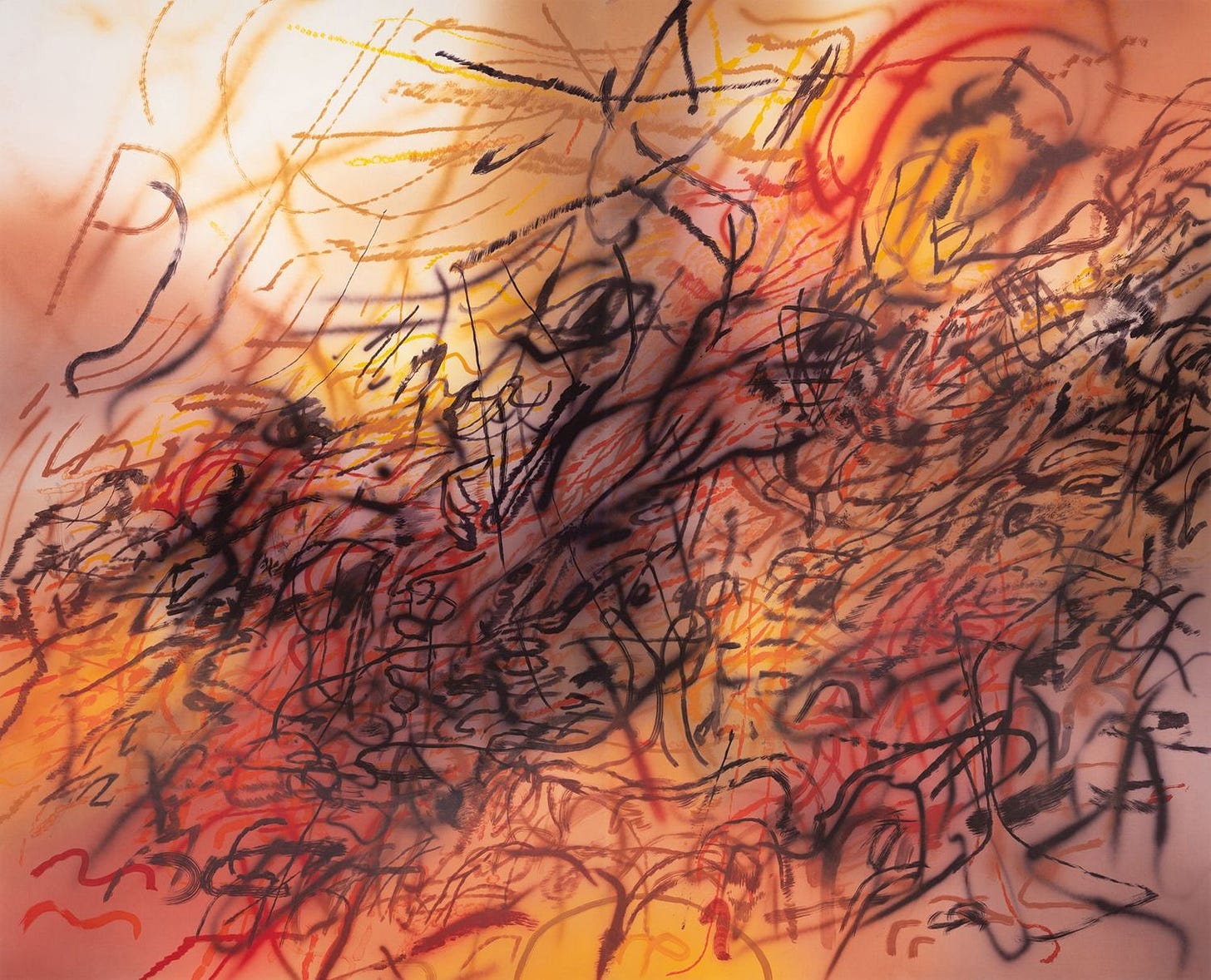"...the centre cannot hold..."
Postmodern listening to and writing about music.
The Internet and Social Media have increased the amount of and access to all types of artistic expression. Music, in particular, accelerates toward a chaotic and creative critical mass where evolution surpasses consideration and that no past ontology can confine. Musical styles have become so atomized that each piece becomes a genre of its own. For example, Lo-fi Music began as an effort to modify the production quality where the sonic imperfections (analog LP hiss, pops, and skips associated with listening to vinyl recordings) are accentuated as a deliberate choice. Since its definition, this relatively new “genre” has fragmented exponentially into, “Lo-Fi Hip Hop,” “Lo-Fi House,” “Chillhop,” “Lo-Fi Ambient,” “Vaporwave,” “Future Punk,” “Lo-Fi Indie Rock,” still incorporating traditional descriptive modifiers like “Lo-Fi Hip Hop” before outgrowing the old otology and forcing writers to invent new descriptors like “Vaporwave” or “Future Funk.”
This creates a conundrum surrounding not only how to write about music but how to listen to it. Music writer Victor L. Schermer provides a paradigm1 for listening to and experiencing music (jazz in particular) that is philosophy based. He describes several methods to guide one’s listening: Empiricism, Idealism, Phenomenological, Existential, and, that sticky wicket, Post-modernism. Cutting to the chase, no one of these approaches can best describe a means of considering music in any capacity greater than background distraction. A combination of Existentialism and post-modernism works well in this regard. Existentialism posits that we are all individuals, with free will, owning both our responsibility and experience. The music I listened to growing up was my naked experience of it that led me, through conscientious choice, to accept and listen to what liked, seeking out more of it, and neglecting what I did not care for. The factors influencing my experience are legion and, often, diametrically opposed to each other. My music listening was as much influenced by what I read as what I heard.
This is where Post-modernism comes in, turning out to be the quantum mechanics of my present listening to the classical mechanics of my existential introduction to music. Of the philosophical approaches to listening to music, post-modern consideration seems best suited for the evaluation of music that is constantly changing and defying standard descriptive norms to the point that it threatens to “disintegrate into ravenous particles.” Postmodernism is a philosophy that arose in the middle to the late twentieth century as a reaction to traditional philosophy, where suspicion that conventional philosophical wisdom manifested social privilege and cultural norms rather than articulating immutable truth (if such a thing exists). The movement is characterized by a skepticism toward the "grand narratives" of modernism; rejection of epistemic certainty or the stability of meaning; and sensitivity to the role of ideology in maintaining political power2. An example of postmodern thought as applied to music is in considering the blues.
Early writing about the blues presented the music as a “Noble Savage,” the pristine Ur-folk music of the Americas, arising out of all of the geographical, social, and cultural influences of the late nineteenth and early twentieth century. In the early twenty-first century, a new generation of music writers researched and reveal that the blues was a construct of the early recording industry targeting its commodity toward a specific demographic (poor, black, southerners). That same industry did the same with “folk” music, early country, and bluegrass music and the poor, rural white population. While this takes all the Romantic magic away, it does pass through the glass darkly into a more honest realm.
Postmodernism is more revolutionary than evolutionary, more akin to a grand mal seizure than a light cognitive dissonance. At the farthest reaches of this thought, only the work of art is considered, neglecting all associated with it. The positive of this is that one is forced to deep dive into the piece of art itself. This method makes for a clean and clinical evaluation of a given piece of art, but that is also the problem with it…its antiseptic smell. What is lost in this method is the richness of the background contributing to the creation of music. This is where the Existential comes back in. The past and present (our personal and cultural experiences) can never be divorced from consideration if one is trying to experience the total value of musical creativity. One need not know what came before a catchy tune that blossomed into the earworm that will never leave, but knowing deepens the fertile loam of the individual and collective unconscious, making us all better-informed listeners.
This is the thinking with which I move forth as I reboot Wild Mercury Rhythm.
Schermer, V. L. (2017, January 31). Listening To Jazz Knowingly And Authentically: The Epistemology And Ontology Of Jazz. All About Jazz. Retrieved July 8, 2023, from https://www.allaboutjazz.com/listening-to-jazz-knowingly-and-authentically-the-epistemology-and-ontology-of-jazz-by-victor-l-schermer
Postmodernism. (2023, July 5). In Wikipedia. https://en.wikipedia.org/wiki/Postmodernism




Yelena, Than you for your kind words. I was trying to capture the frustration of following a music that is evolving so quickly that a greater and greater portion of it arrives half-baked and unrealized. I did have the occasion to be labeled as "old-fashioned" by a reader who took exception to my end-of-the-year-list. But, so be it. I only know what I know.
An admirable first foray into the philosophical underpinnings of listening to music. Reminds me of erstwhile philosophical discussions in the early days. As an example, Jackson Browne's Late For The Sky album is worth post-modern consideration in itself, for the earnest and angst-ridden lyrics, the exquisite lap steel guitar of the late David Lindley, and that Chevy door closing on "The Late Show." But it is ever more existentially satisfying to remember the emotions it brought up within me when I listened to the album in my dorm room at Hendrix. Would you concur?